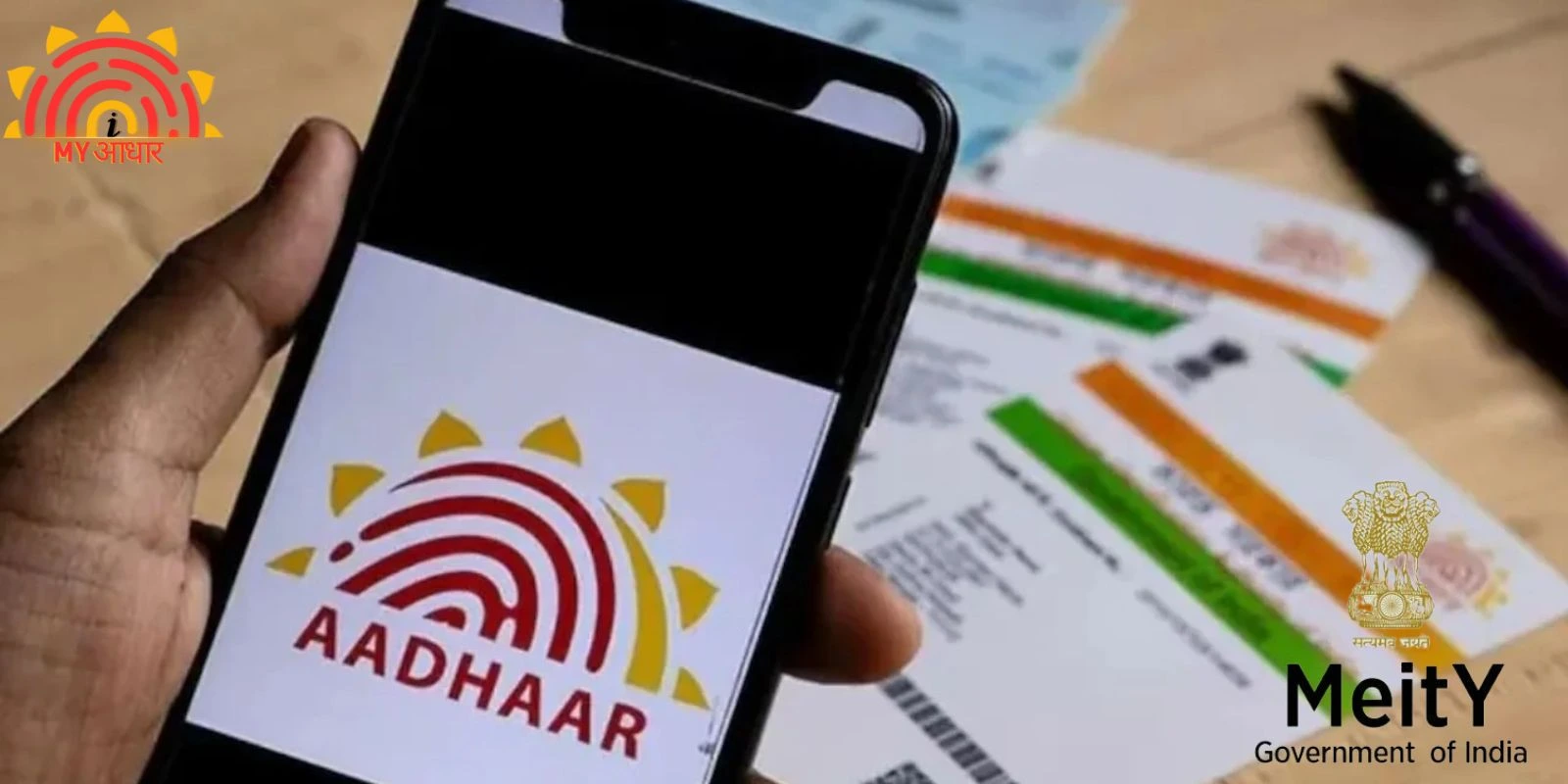
MeitY Expands Aadhaar Authentication to Private Entities Under New 2025 Amendment
Through its recent decision the Indian government expanded its Aadhaar authentication services to include private sector organizations. An enhanced transparency and security regime along with operational efficiency will be achieved by businesses who access Aadhaar-based authentication for user verification purposes. The Ministry of Electronics and Information Technology (MeitY) has initiated this addition through the Aadhaar Authentication for Good Governance (Social Welfare, Innovation, Knowledge) Amendment Rules, 2025.
Background
The technology used to authenticate Aadhaar previously operated within administrative bodies together with banking and telecommunications fields. Section 57 of the Aadhaar Act faced opposition from the Supreme Court because it permitted private companies to use Aadhaar authentication during 2019. These amendments were designed to expand authentication access with measures that protect privacy standards and security requirements.
The Unique Identification Authority of India (UIDAI) distributes the 12-digit unique identification number Aadhaar which functions as the essential digital identity foundation in India. The government entities use Aadhaar for social welfare and regulatory purposes but private organizations maintain ongoing interest in Aadhaar authentication for their customer verification needs. With the 2025 amendment the government has introduced a fundamental change that enables limited participation by private businesses in Aadhaar authentication functions.
Understanding Aadhaar Authentication and Its Expansion
Aadhaar authentication represents a method for auditorily verifying individuals through their Aadhaar number when combined with UIDAI-stored biometrics or demographic details. Prior to this amendment the service of Aadhaar authentication was restricted to government agencies together with select entities. The updated amendment enables private businesses within financial sectors of fintech and banking along with healthcare facilities and telecom providers to use Aadhaar authentication systems for user identification purposes.
Key Features of the Amendment
- Expanded Scope: Aadhaar authentication becomes available for private companies operating in e-commerce and travel and tourism and hospitality and healthcare sectors. The extended scope of using Aadhaar authentication looks to boost service delivery while improving ease of living through its powerful identity database system.
- Streamlined Approval Process: Financial institutions or private organizations need to file official documentation about their planned application of Aadhaar authentication to properly approved ministries or state departments. UIDAI performs reviews of all applications to validate whether they satisfy established regulatory standards. The Ministry of Electronics and Information Technology (MeitY) will give formal approval through recommendations received from UIDAI. The established procedure protects Aadhaar authentication from both inefficient and improper utilization.
- Privacy and Security Measures: The modification clearly highlights the fundamental value of maintaining privacy together with secure data handling. Although private entities remain barred from accessing biometrics under UIDAI regulations the organization will maintain its virtual ID system along with offline verification methods. Aadhaar authentication operations will operate under strict supervision with limitations to stop any misuse and promote authorization of public interest activities.
Businesses must use strong encryption systems alongside following strict data protection regulations to stop unauthorized access of user information Regular audits from the UIDAI will verify that companies uphold the mandatory regulations set by the authority.
Objectives of the 2025 Amendment
The 2025 amendment aims to:
- Advance Digital Governance: The government allows private entities to access Aadhaar authentication for the purpose of creating a faster and streamlined system for digital business-customer engagements that requires fewer paper documents and quicker service provision.
- Enhance Business Services and Onboarding Systems: The amendment will boost the services directed towards business clients together with their enrollment procedures. Private companies gain access to Aadhaar authentication technology to enhance customer registration through simplified procedures and improve user verifications while cutting down fraud incidents.
- Promote Innovation Across Multiple Sectors: The amendment should establish rapid Know Your Customer (KYC) procedures which support innovation within fintech together with healthcare and telecommunications and additional market areas. The instant verification system lets companies deliver smooth customer experiences while meeting industry regulations.
- Prevent Identity Fraud and Secure Financial Transactions: The modification aims to defend against identity fraud as it safeguards financial transactions from security threats. The amendment establishes improved authentication protocols which combat identity theft and money laundering activities to secure digital payment transactions.
- Encourage Growth in the Digital Economy: Businesses will benefit from Aadhaar authentication through this amendment and it will provide startup and established businesses with efficient opportunities to expand their services. The digital economy will develop robust systems through this change because it ensures online security and trust in digital transactions.
- Simplify Government-Private Collaboration: A regulatory framework enables the government to motivate increased collaboration between public institutions and private entities for building a cooperative digital atmosphere.
Potential Impact
On Governance: By extending Aadhaar authentication to private entities the government expects to create better transparency and inclusive governance processes. The government seeks to create an efficient digital verification system for transactions by extending access of Aadhaar verification to additional organizations. A reliable identity verification system will improve decision-making capabilities because it enables better decision processes.
- On Innovation: Through these amendments the government encourages entities to create new digital solutions which implement Aadhaar authentication systems. New methods of service streamlining along with improved customer interactions become accessible to private businesses through this change. Better authentication processes to welcome guests operate as an opportunity for hotels while healthcare receives improved Aadhaar verification system benefits. This change will promote both innovation and public-private alliances and their implementation.
- On Service Delivery: Aadhaar authentication expansion will lead to better service delivery in multiple economic areas. The KYC system operated by e-commerce platforms links up with checking systems of travel agencies and healthcare facilities provides enhanced access to medical resources through authenticated authentication processes. Through Aadhaar authentication services people will find it simpler to obtain services because document resubmissions become unnecessary.
The authentication process through Aadhaar brings down fraudulent activities in financial services thereby establishing enhanced trust between consumers and businesses.
Who Can Use Aadhaar Authentication Now?
Private organizations can request Aadhaar authentication services through UIDAI after meeting specified requirements and obtaining their approval. Eligible entities include:
- Financial institutions together with banks use quick KYC verification to decrease instances of fraud in transactions.
- SIM card providers need Aadhaar authentication services to verify their customers for identification purposes.
- Healthcare Providers: To streamline patient registration and insurance claims.
- Appearing before an authorized entity like UIDAI represents an essential step for entities in the e-commerce & logistics sector to authenticate users for safe transactions.
- Educational Institutions: For student identity verification during online admissions and examinations.
- Travel & Hospitality utilizes the solution to make guest check-ins quicker and to provide effortless verification of travel information.
Conclusion
The Aadhaar Authentication for Good Governance Amendment Rules, 2025 represent an important advancement in digital governance which strengthens innovation across India. The government seeks to establish an efficient digital system and inclusive environment through authorization expansion for private entities utilizing Aadhaar authentication. These new changes help providers and end-users improve their transaction security and access to multiple services.
The increased implementation of Aadhaar authentication across Indian society will be essential for continued national development while delivering better standard of living to its citizens. The success of this initiative relies on both implementing the program with responsibility and following data security laws strictly. This amendment creates harmony between technological creativity and user privacy mechanisms thereby establishing digital citizenship across India.
Frequently Asked Questions (FAQs)
1. Why is Aadhaar authentication being expanded to private entities?
The expansion system plans to develop digital governance capabilities alongside better customer verification steps as well as higher security measures across different sectors. Businesses can provide trustworthy and smooth services to their customers along with protection against fraudulent activities.
2. Will private companies have access to my biometric data?
Private entities will not obtain access to biometric information under the Aadhaar authentication system. Identity verification is the only purpose that Aadhaar authentication serves while refraining from disclosing private biometric data.
3. How will Aadhaar authentication benefit consumers?
Consumers will experience faster onboarding processes, reduced paperwork, and enhanced security in financial and digital transactions.
4. Is Aadhaar authentication mandatory for private businesses?
No, it is optional. Private organizations need to get consent from both UIDAI and MeitY to perform Aadhaar authentication.
5. What sectors will benefit from this expansion?
The banking sector and fintech businesses and medical provider and e-commerce and telecom and travel industries can enhance their identity verification services with speed and security.
